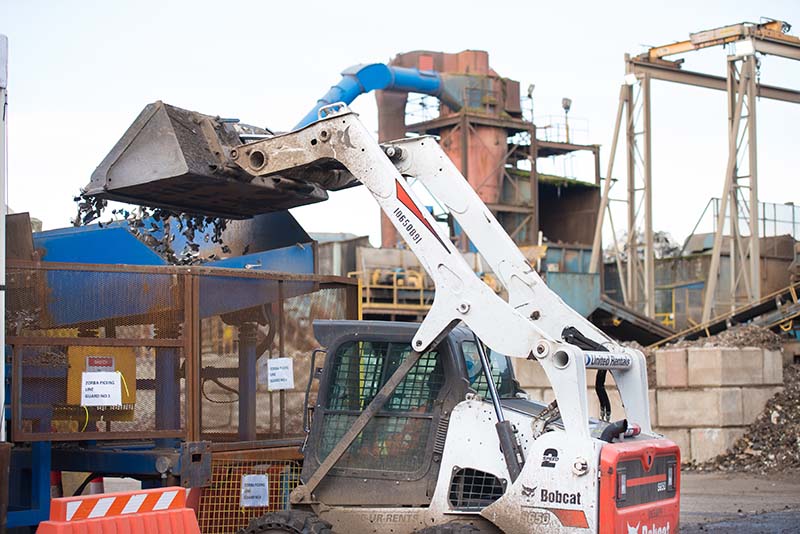
Scrap metal is essential to the Canadian economy. But dealing in the scrap metal market can be unpredictable, due to a number of factors that cause prices to fluctuate constantly. We break down some further complex reasons why the value of scrap metal recycled by companies like Richmond Steel Recycling change so frequently.
In the scrap metal industry, materials are separated into ferrous and non-ferrous metals and the two groups vary substantially in price. Put simply, ferrous metals are metals that contain iron and are known for their strength. Examples of ferrous metals are stainless steel, carbon steel and cast iron and these materials are often used for building bridges, skyscrapers and vehicles.
Non-ferrous metals do not contain iron and include metals such as copper, aluminum, lead, zinc and tin. Non-ferrous metals are malleable, non-magnetic and lightweight which makes them ideal for wiring, pipes and electrical appliances. The Bureau of International Recycling (BIR) estimates that worldwide, 45% of the world’s annual copper production and 33% of the world’s aluminum is produced from scrap metal recycling.
Ferrous metals prices tend to be more stable than their non-ferrous counterparts because ferrous metal prices fluctuate over a longer period of time. This is a result of mills buying ferrous metals on a monthly contract, as they normally plan a melt once a month.
Non-ferrous metals values can jump around from week to week or even day to day. Buyers purchase metals like copper by the pound, which makes non-ferrous metals much more valuable than iron-based metals. Paying by the pound also means a small change in value can affect larger dollar amounts, resulting in bigger gains or losses. As well as being subject to international demand and prices, these reasons make non-ferrous metals prices far more volatile than ferrous metals.
The Canadian government has a very positive impact on the scrap metal industry. Good regulation means that the reputation of the industry in Canada remains highly-regarded and prices remain steady.
The government has limited cash transactions and requires dubious payments to be reported to the police. It has also prevented the industry from operating unsafely by blocking hazardous materials from freely circulating the market which could harm scrap metal works and the environment. Lastly, the government educates the public to properly sort metal before it's recycled and arrives at scrap yards. This improves quality and reduces waste.
In an attempt to clean up their environment and encourage domestic recycling, China has introduced a number of new restrictions on scrap metal imports, which have caused significant disruption in the scrap metal business worldwide. China is the world’s biggest metals consumer, but from July 1, the country has started restricting high-grade copper, aluminum and steel scrap imports, to add to a ban on used cables, waste motors and other hardware waste, which began earlier in the year.
The Chinese government’s new policies have been felt globally by companies like Richmond Steel Recycling. Licenses and quotas for scrap metal importers in China are now more difficult to obtain which makes China’s internal market less competitive and has lowered the price of scrap metal in the country. With less material going to China, exports have been directed to other markets like India and Malaysia which pay less capital. Higher quality requirements has also forced suppliers without proper equipment to ship metal away from China. Imports to China have slipped by a third in the last year to 5.34 million tonnes, down from 8.07 million tonnes in 2017. Such major market changes, combined with new laws, always results in industry uncertainty and creates market volatility.
To learn more about the scrap metal prices offered by Richmond Steel Recycling, please contact your local facility.